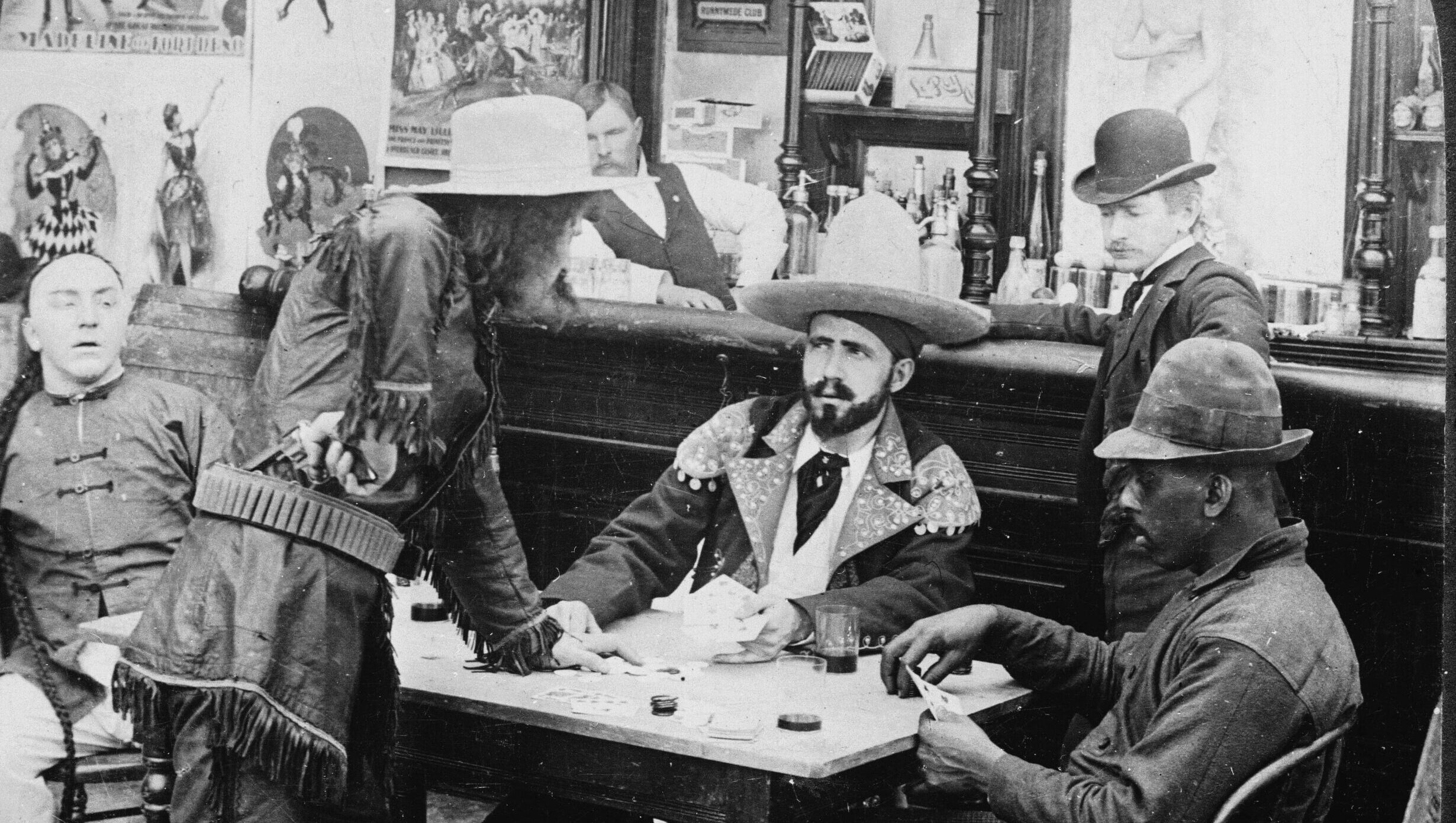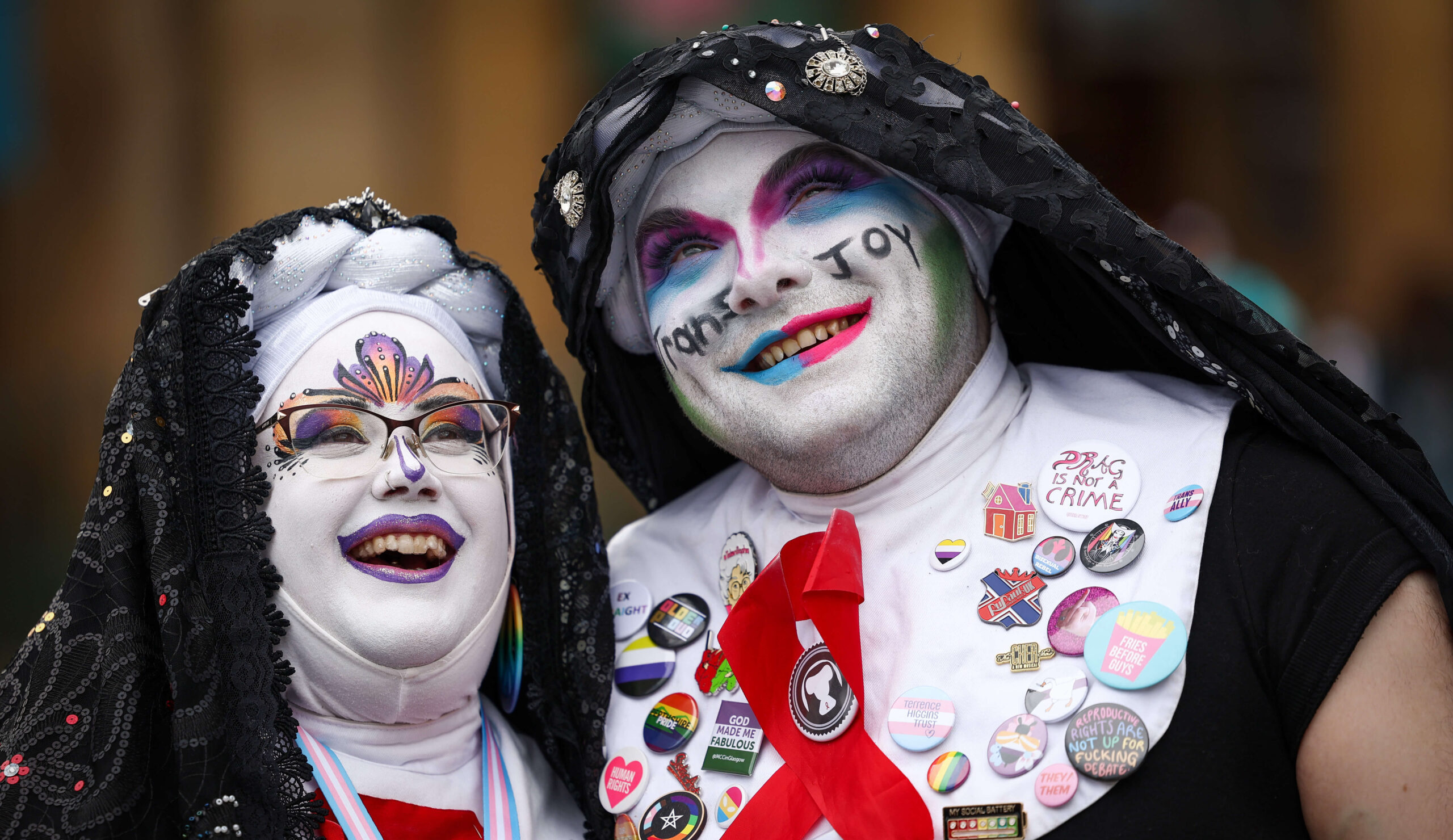Tom and Karen lived on Capitol Hill in Washington, D.C., in the days when it was a neighborhood “in transition,” as real estate agents delicately put it—a mix of professional, white newcomers and long-term residents who were mostly poor and black. Tom and Karen liked that mix, the connection with people not like themselves. They joined with their neighbors to improve a common green space on their street. Those neighbors weren’t friends, exactly, but they weren’t strangers. If you asked Tom and Karen what they liked about their neighborhood, they would have said its “diversity.”
Diversity. It’s an overused omnibus word that makes me sigh whenever I hear it. The scholar and critic Richard Weaver observed that every society has what he called “god terms”—words or phrases that evoke, often thoughtlessly, what are taken to be its supreme and indisputable goods. In Weaver’s day, “democracy” and “progress” were god terms, and along with “freedom” they still have currency. New god terms have emerged since then: “sustainability,” for example, and “inclusion.” And, of course, “diversity.”
Weaver rightly complained that god terms are conversation stoppers and notoriously vague, but they’re inevitable because we can’t explain everything at once. We need summations of our ideals, verbal touchstones, slogans for our ill-defined but heartfelt convictions. Although I can’t invoke “diversity” with Tom’s and Karen’s straight-faced earnestness, I can sympathize with what they want to promote and protect with this god term. The best way to respond to their enthusiasm about the diversity of their neighborhood, then, is to try to understand the ideals, the hopes, the fears, and the suspicions that they pack into that word.
Tom has an advanced degree; Karen went to an elite East Coast college. Products of the meritocracy, articulate and self-possessed, they’re winners in the game of life as it’s now played, with high-powered Washington jobs that give them influence and status and more than a decent income. Still, the American democratic spirit, which they share, makes them worry about the temptation to imagine that they’re superior and deserve to live on a higher plane than everyone else. This egalitarian conviction has roots in the double heritage of our nation. Christianity teaches that we’re all equal in the eyes of God, who is “no respecter of persons,” and the Enlightenment insists that all men are endowed with natural rights that are more fundamental than their status in society.
We acknowledge hierarchies. No social system can do without them. On the job, the boss is the boss. In the classroom, the teacher is in charge. But our Christian and Enlightenment heritage trains us to see these distinctions as necessary in some circumstances but not ultimate. When they have left the parade ground, the private has as much right to be respected as the four-star general. This belief—unique to democratic cultures, rare in human history, and never fully realized—is fundamental.
This commitment to the natural dignity we all share works against a class system in America. Not everybody has the same income or education or status, but we’d like to think that in a deeper sense nobody is above, and nobody below. We want to believe that we all eat the same rations, that our personal destines are somehow tied to the weal and woe of our fellow citizens.
Walt Whitman, the great poet of the American spirit, wrote of himself, “I encompass worlds and volumes of worlds.” That sounds as if he’s puffing himself up into some sort of Universal Man. But his meaning is otherwise. Whitman is saying that a true American does not separate himself from his neighbor. He stands neither above nor below him but face to face, sharing a common life and destiny.
That’s why Tom and Karen loved Capitol Hill. Walking home from work and greeting their neighbor, a black woman recently retired from the Department of Motor Vehicles, they felt reassured, knowing they shared their lives in many small ways with people less educated, less wealthy, and less privileged. If they didn’t quite “encompass worlds and volumes of worlds,” they at least enjoyed the neighborliness that keeps our homes from feeling like fortifications against a cold, hostile world.
“Diversity” is a pretty bloodless word for what Tom and Karen loved about their neighborhood. In fact, it’s positively misleading. The god term tempts us to think that all we need for a living community of reciprocal obligation is the right demographic recipe. It also tempts us to see others as mere ingredients rather than living persons. We compliment ourselves for having black or Hispanic neighbors, as if their purpose is to make our lives “diverse.”
Strictly speaking, diversity is a lifeless statistic. What Tom and Karen cherished but mislabeled is solidarity, a condition of sustained personal interaction and reciprocal obligations combined with an internal sense of belonging. Obviously, if we want to promote solidarity with others, we need to make sure they are present, and given our history of racial discrimination, it can make sense to take diversity into account. Unless blacks and whites are present to each other in common activities, institutions, and public spaces, they cannot discern their shared American identity. But often, in a fit of circular reasoning, we promote diversity for the sake of diversity, which gets us nowhere. If taken too far—and it often is—the ideology of diversity works against solidarity. Bean-counting to ensure exact representation produces a demographic checklist, not an organic, living community.
Race-based redistricting to guarantee black seats in Congress is a classic example. The predictable result of engineering diversity is Balkanization, with black voters concentrated in a limited number of electoral districts to ensure the election of black representatives. Universities produced the academic version of this phenomenon when they began establishing “black studies” programs in the 1970s, provoking demands for women’s studies, gay studies, Native American studies, and on and on. By encouraging students’ preoccupation with their ethnic or racial or sexual tribe, these academic set-asides diminish the solidarity that ought to flourish in a university.
When an appropriate attention to diversity is twisted into the ideology of multiculturalism, we are left with no shared culture at all, our common life becoming at best a temporary peace treaty between competing power interests. Multicultural ideology justifies the dominance of elites who are committed to “hearing all voices,” “listening to the marginalized,” and “promoting diversity.” These therapeutic expressions of pseudo-solidarity insulate elites from substantive criticism. Those who challenge them are dismissed as enemies of diversity—racists, bigots, xenophobes.
However misguided in their attachment to the god term diversity, Tom and Karen desire something worthwhile. Solidarity stems from our free assent to unity in the service of a common end. The players on a high school sports team achieve a strong bond through their shared commitment to making the sacrifices necessary to play well and win. Citizens and neighbors committed to sustaining good schools, safe streets, and well-tended parks enjoy a similar bond. National solidarity is not the fruit of diversity. It grows out of common loyalty to our founding principles, identification with our shared history, and the commitment to preserving our heritage for the next generation.
For a religious person, the most perfect expression of solidarity is worship. The church unites around praise of God, our highest end. This unity is not theoretical. Unlike the “international community,” which does not exist as a genuine form of solidarity, the Christian community has a genuinely international scope. An evangelical from Dallas can travel to Uganda or China and join in a spiritual communion with his fellow Christians, sharing the Word of God and entering into a fellowship of prayer. The same goes for Catholics, whose church uses the same pattern of liturgical worship throughout the world. When I attend Mass in another country, celebrated in a language I don’t understand, I kneel and pray not among strangers but among brothers, with whom I pray to our common Father.
From its beginning, Christianity opposed the use of worship to buttress political unity. Early Christians refused to offer sacrifices to the civic gods of ancient Rome. God transcends the political order. Divine service and the solidarity it engenders are reserved for the city of God, the church, not the city of man. But the Bible endorses national identities as created goods worthy of our loyalty. At Pentecost, the Holy Spirit allows a gathering of people from many different nations to hear the message of Christ in their own languages, not in Esperanto. Our natural forms of solidarity, including nationality, play a role in the divine plan, preparing our hearts for our supernatural union with God and our neighbor.
We’re facing a crisis of solidarity, not freedom, and this crisis of solidarity foretells a crisis of freedom. Atomized, isolated individuals adrift in a deregulated moral culture are easily dominated, whether by political manipulators or the directionless leadership of mass culture.
A Christian society recognizes the importance of solidarity. Christians know we serve neither history nor destiny nor progress. We are not drawn together by GDP. An ever-greater utility, fevered dreams of sexual freedom, and equality of the sexes are devouring abstractions, not bases for solidarity. A frictionless free market may promote economic growth, but it cannot bind us together in a living community. A nation is more than a scaled-up limited liability corporation. As our shared civil life is diminished, a Christian seeks the common good. He criticizes America, but with a spirit of loyalty, resisting the post-patriotic mentality. We mustn’t seek the social weightlessness that liberates the rich and powerful while atomizing and disempowering most citizens. To love our neighbor we need to love our neighborhood. ♦
R.R. Reno is editor of First Things magazine and formerly a professor of theology and ethics at Creighton University. This essay is adapted from a chapter in his new book, Resurrecting the Idea of a Christian Society, and published here with permission from Regnery Faith.














